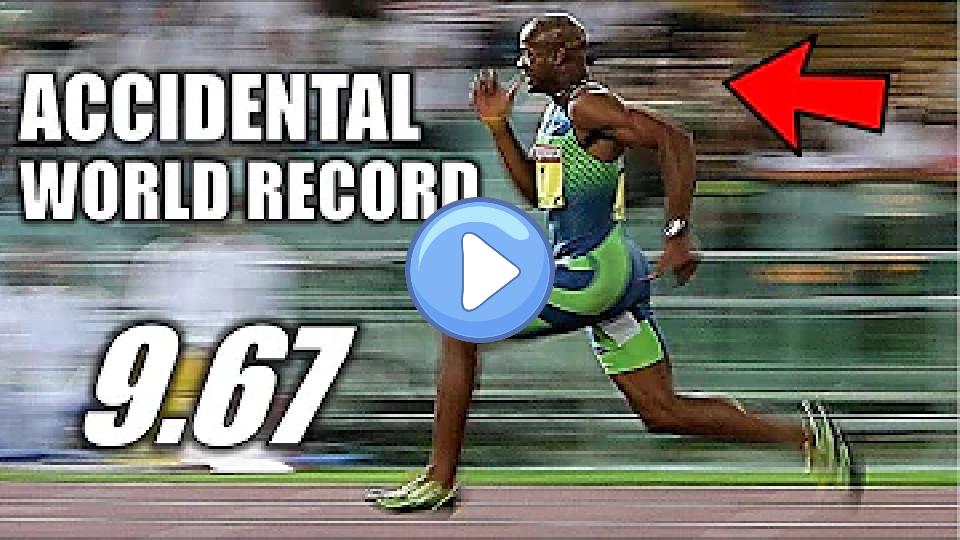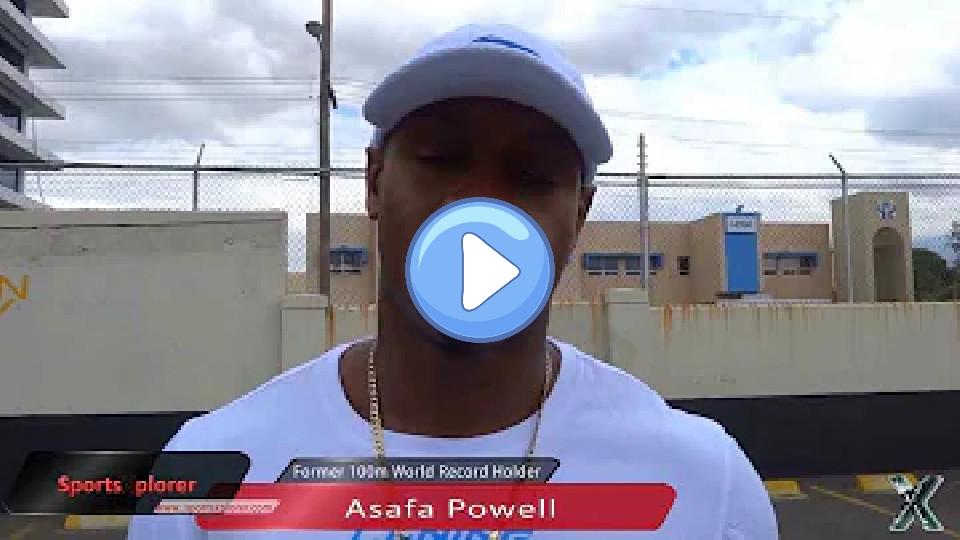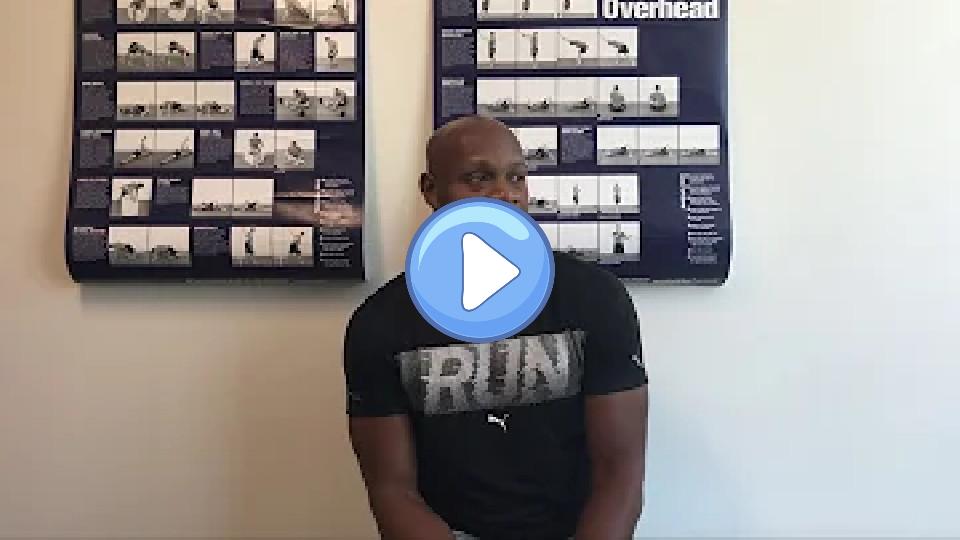Asafa Powell's Sports Injuries
Type of Sport: Track And Field
Asafa Powell's Sports Injuries Table
| Type | Area | Date | Consequences | Content | How It Happened | Recovery Duration | Rehabilitation Details | Impact On Career | Psychological Impact | Previous Injuries | Return To Competition | Severity | Treatment | Medical Staff | Long Term Impact | Preventive Measures | Competition Missed | Initial Symptoms | Re Injury Risk | Support System | Rehabilitation Location |
|---|---|---|---|---|---|---|---|---|---|---|---|---|---|---|---|---|---|---|---|---|---|
| Ankle Injuries | Left Ankle | 2010-06-11 | Missed several weeks of training and competitions. | Asafa Powell was in the middle of an intensive training period when he twisted his left ankle, leading to significant swelling and pain. | During a training session, twisted his ankle while sprinting. | 4 weeks | Rest, ice, compression, and elevation (RICE) followed by gradual strength and mobility exercises. | Temporary setback but returned to competition shortly after recovery. | Frustration due to interruption of training schedule. | Previous groin injury in 2005, no significant ankle issues reported before. | 2010-07-10 | Mild | RICE method, physiotherapy, and anti-inflammatory medication. | Team physiotherapist and sports doctor. | No significant long-term impact reported. | Increased focus on ankle stability exercises. | Several minor competitions and training sessions. | Swelling and pain in the left ankle. | Low, with proper preventive measures. | Support from his coach, team, and family. | Kingston, Jamaica |
| Groin Injuries | Right Groin | 2005-07-23 | Had to withdraw from the race and subsequent competitions. | Asafa Powell pulled up during the 100m final, grabbing his right groin. He was in peak form that year, having set a new world record of 9.77 seconds in Athens. | During a 100m race final at the Crystal Palace Grand Prix in London. | 6 weeks | Underwent physiotherapy and a structured rehabilitation program focusing on strength and flexibility. | Missed several key races but returned to top form later in the season. | Initially distressed but remained determined to recover and compete. | None significant reported before this incident. | 2005-09-09 | Moderate | Rest, physiotherapy, and anti-inflammatory medication. | Team physiotherapist and sports doctor. | No significant long-term impact reported. | Incorporated more groin-specific strengthening exercises into his routine. | Several Grand Prix events and the World Championships. | Sharp pain in the right groin area. | Moderate, but managed with preventive measures. | Support from his coach, team, and family. | Kingston, Jamaica |
| Muscle Injuries | Left Hamstring | 2016-08-13 | Had to pull up during the race, unable to finish. | In a heartbreaking moment, Asafa Powell suffered a hamstring injury during the final leg of the 4x100m relay, which led to Jamaica not finishing the race. | During the 4x100m relay final at the Rio 2016 Olympics. | 8 weeks | Intensive physiotherapy, stretching, and strengthening exercises. | Missed the rest of the season, impacting his overall performance and rankings. | Significant disappointment and frustration due to the high-profile nature of the event. | Previous groin and ankle injuries, but no significant hamstring issues reported before. | 2016-11-10 | Severe | Rest, physiotherapy, and a structured rehabilitation program. | Olympic team medical staff and personal physiotherapist. | Increased focus on hamstring care in training routines. | Enhanced warm-up routines and hamstring-specific exercises. | Rest of the 2016 season including several Diamond League events. | Sharp pain and inability to continue running. | Moderate, managed with preventive measures. | Support from his coach, team, family, and fans. | Kingston, Jamaica |
Asafa Powell's Sports Injuries Videos
Asafa Powell discusses his injury.
Asafa Powell speaks about his injury. He mentions that they will assess its severity in a few days. It was his first opener for the season, and he aimed to shake out his legs, but the injury got the best of him. The cramp occurred in the same hamstring that was injured in Australia. He thought it had improved over the past month, felt great in training, and wanted to see his progress.

When You Accidentally Break a World Record
Before Usain Bolt, Asafa Powell set the standard for 100-meter speed. On September 9th, 2007, in Rieti, Italy, Powell ran the men's 100-meter dash. Just two weeks earlier, he had finished third in the World Championships with a time of 9.96 seconds, a disappointment given his previous world records of 9.79 and 9.77 seconds set between 2005 and 2007. In Rieti, Powell stunned the world by casually jogging the last 30 meters yet still breaking the world record with a time of 9.74 seconds. Analysts speculate he could have achieved around 9.68 or even 9.65 seconds had he sprinted through the finish. Powell's career saw him consistently breaking the 9.80-second barrier, doing so eight times and running under 9.90 seconds on 43 occasions, more than Usain Bolt. Powell's Rieti performance remains a highlight, showcasing his exceptional speed and raising questions about his potential had he maintained his pace.

Asafa Powell influenced a generation of sprinters with this one thing 🤯👀
In the video, Justin Gatlin addresses a common misconception about his running technique, particularly the "toe drag" move. He clarifies that he never dragged his toe during races, explaining that the aim is to keep the foot as low to the ground as possible without actually dragging it. He mentions that the toe drag myth originated from a photo shoot for Nike, where the motion was exaggerated for the photographers. Gatlin emphasizes that in training, the foot might get close to the ground, but it never drags during actual competition. He hopes to clear up the confusion for coaches and athletes who have adopted this incorrect technique.

Asafa Powell speaks to SportsXplorer about his injury, may not be ready for the JA Invitational.
Asafa Powell discusses his recent hamstring injury, describing it as a minor issue common among sprinters. He mentions it's a two-week injury and he's recovering, but not pushing himself yet. Powell is optimistic about being ready for upcoming track meets and the trials, although he is unsure about his participation in specific events.

Asafa Powell: Why He Trusts Dr. Bob for Sports Injury Rehabilitation
Asafa Powell is a professional Jamaican sprinter specializing in the 100 meters. He held the world record for this event from June 2005 to May 2008. Powell has been competing for over 15 years, participating in multiple Olympic Games since 2004 and winning gold medals. He has faced injuries but found effective treatment with Dr. Webber, which helped him recover and continue performing at a high level. Powell trusts Dr. Webber's expertise, which has allowed him to maintain his competitive edge.

This was the time Asafa Powell could have run 9.6 EASILY 🤯
In this conversation, the speaker reflects on a significant race where they unexpectedly broke a world record. They describe the meticulous preparation and mindset leading up to the event, including instructions from their coach to focus on the drive phase and transition, then ease off at 70 meters. Despite easing up, they achieved a time of 9.74 seconds, which surprised them as it was only the heats. The speaker expresses disbelief at the flawless execution and ponders how much faster they could have run if they hadn't eased off. The achievement was celebrated widely, and it left a lasting impression in the track world.

The Truth Behind Jamaica's Sprinting Challenges (Asafa Powell Reveals All!) 😲
Jamaican sprint legend Asafa Powell explains why Jamaica has struggled to replace Usain Bolt, while the USA has seen recent success in sprints. Powell believes Bolt could have run even faster than his record times and suggests the 200m record might be broken sooner than the 100m. He highlights that Jamaica needs to improve the transition of sprinters to reach the top again, emphasizing patience in developing young athletes.

The Jamaican team was flying with Usain Bolt.
The Jamaican team was flying with Usain Bolt. Do you want to get recruited by D1 schools? If so, check out...

Asafa Powell Slow Motion Side View in HD

